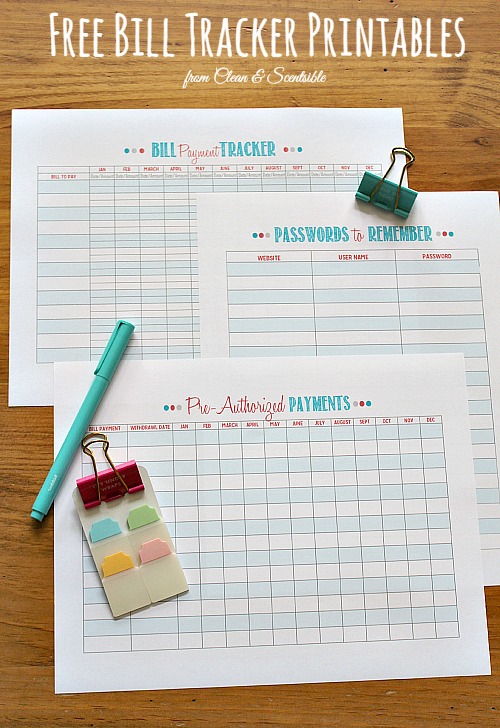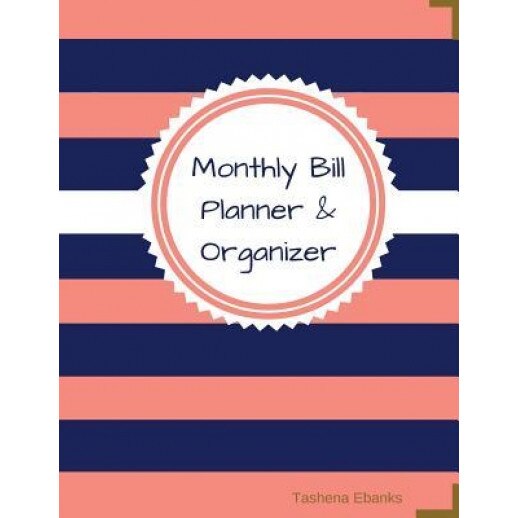

Asset allocations for investment accounts.A comprehensive list of all your assets and accounts.It helps in organizing your financesĪ financial binder should consist of the following: It should include each financial document you have.Īlong with the important documents, you should keep paid bills stored in your binder. Financial BinderĪ financial binder is an essential tool in bookkeeping. Generally, you should use the following two things to manage your records: 1. However, once you have organized all your financial records, your life will become much more comfortable dealing with financial matters. Due to the rapidly increasing eCommerce industry and online payment solutions, keeping track of all the financial records has also become difficult. Technology plays a huge role in organizing finances.

6 Simple Ways To Stick To Your Budget Monthly 4: Maintaining Your Financial Records.
#HOW TO ORGANIZE YOUR BILLS ON A PLANNER HOW TO#
How to Create a Personal Budget: A Beginner’s Guide. When you have a budget, you gain better control of your finances by accounting for where it all goes, dollar for dollar. Also, outline all sources of income and cut down on necessary obligations.Īlways review your budget and ensure all things are in place because it’s essential to organize your finances. Once you have a budget, write down all your liabilities, payment, and monthly expenses. Budgeting helps you to organize your finance and know when to spend and when not to spend. Without having a budget, your finances will be in jeopardy. Create a Budget and Stick to Itīudgeting is a critical step in organizing your finances and making the best out of them. If you’re interested in signing up for Personal Capital for free, please click here. You can track your net worth, cash flow, portfolio, investments, and more using Personal Capital. When you determine your net worth, you can set financial goals, create a budget, track your spending habits, and finally take control of your finance. It might be tempting to skip this step, but if you don’t determine you will be missing an important part in organizing your finances. In such a case, you should use modern financing applications, graphs, or systems to complete this step. If you have a great number of assets and accounts, it can be challenging to correctly calculate your net worth. Net Worth = Total Assets – Total Liabilities The following formula simply calculates it: Once you have listed out all your accounts, the time has come to calculate your net worth. Liabilities: Credit cards, education loans, personal loans, medical debt, and mortgages. Retirement Accounts: Pension and annuity.Ĥ. 
Investments: Business interests, insurance, brokerage, and real estate.ģ. Asset Accounts: Saving accounts, certificate deposits, checking accounts, money market account, and any cash you might have stored at a safe location.Ģ. Remember that this is a critical step in organizing your finances, and you must inventory all your accounts.ĭuring this step, you should evaluate all types of finances and accounts. You can type them in a spreadsheet or use a traditional pen and paper to note the accounts’ details. The primary step of the finance organization is to write down all your accounts. Now that you are familiar with the significance of organizing your finances keep reading to follow the 10 steps of effectively managing your money.
All aspects of your finances, including retirement plans and estate planning documents. Insurances for your job, health, and life. An excellent budget according to your requirements, lifestyle, and income. The exact number of accounts and credit cards you have. Your finances include all aspects of your life – employment, side businesses, and any other savings you might have.īy the end of the organization process, you should be familiar with: To have a secure and stable financial future, you must be familiar with your financial conditions. Conclusion Importance of Organizing Your Finances.







 0 kommentar(er)
0 kommentar(er)
